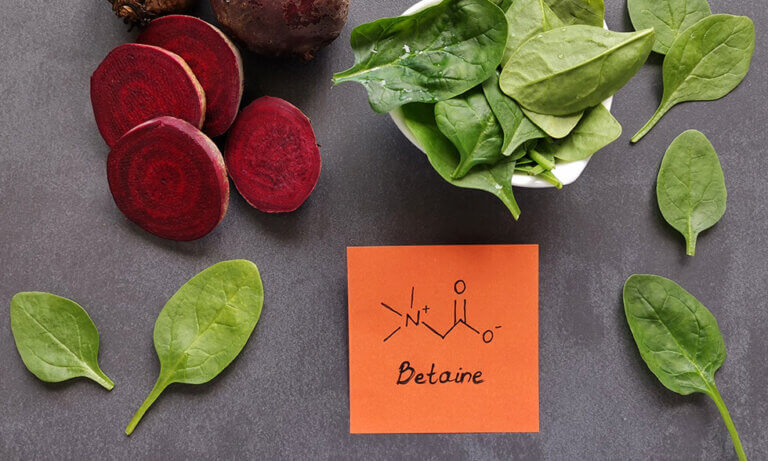What Is a TMG Supplement? Benefits, How to Use, and More
| | Reading Time: 3 minutes

What Is TMG (Trimethylglycine)?
Definition and Biochemistry
TMG, short for trimethylglycine and also known as betaine, is a naturally occurring compound made from three methyl groups attached to a glycine molecule. It plays a critical role in the body’s methylation processes — biochemical reactions that help regulate gene expression, support detoxification, and maintain overall cellular health.
Food Sources and Natural Production
While your body can produce some TMG on its own, it is also found in dietary sources. Foods rich in TMG include beets, spinach, quinoa, and wheat bran. Many people, however, do not get optimal levels from diet alone, which is why supplementation can be beneficial for specific health goals.
Key Benefits of TMG Supplementation
Supporting Cardiovascular Health via Homocysteine Regulation
One of the most well-known benefits of TMG is its ability to help lower homocysteine levels in the blood. High homocysteine is associated with an increased risk of cardiovascular disease. By donating methyl groups, TMG supports the conversion of homocysteine into methionine, which is safer for the body.
Boosting Athletic Performance and Energy
TMG has gained popularity among athletes for its ability to support endurance, strength, and recovery. It helps maintain optimal muscle function by aiding creatine synthesis and supporting energy metabolism during high-intensity training.
Enhancing Liver Function and Detoxification
Your liver depends on efficient methylation for detoxification processes. TMG supplementation can help improve liver function by reducing fat accumulation and supporting the breakdown of toxins, making it beneficial for overall metabolic health.
Supporting Cognitive Function and Mood
Because methylation is essential for neurotransmitter production, TMG may improve mood, mental clarity, and focus. It supports the synthesis of serotonin, dopamine, and other brain chemicals that influence emotional well-being.
Contributing to Healthy Aging and Cellular Methylation
As we age, methylation efficiency naturally declines, which can impact DNA repair and cellular health. By providing an extra source of methyl groups, TMG supports healthy aging processes and protects cells from oxidative stress.
How to Use TMG Supplements Properly
Common Dosage Ranges and Timing
The ideal dosage depends on your health goals. For general wellness, doses of 750–1,500 mg daily are common. For cardiovascular or liver health, 2,000–3,000 mg per day may be recommended. Athletes sometimes take up to 3,000 mg twice daily. It’s best taken with meals to enhance absorption.
Combining TMG with NMN or Other Methyl Donors
If you take NAD⁺-boosting supplements like NMN or NR, pairing them with TMG can be beneficial. NAD⁺ boosters can deplete methyl groups, and TMG helps replenish them, maintaining balance in methylation pathways.
Safety, Tolerability, and Side Effects
TMG is generally well tolerated. At high doses, some people may experience mild digestive discomfort, such as bloating or diarrhea. Always start with a lower dose and increase gradually, and consult your healthcare provider before starting supplementation.
Choosing a High-Quality TMG Supplement
Medical-Grade Nutritional Standards
Dr. J. E. Williams emphasizes choosing medical-grade supplements from trusted manufacturers who adhere to rigorous purity and potency standards. This ensures you get an effective product free from contaminants.
Third-Party Testing and Purity
Look for supplements that have undergone third-party testing to verify quality, potency, and safety. Transparent labeling and sourcing practices are key indicators of a trustworthy brand.
FAQs About TMG Supplement
What are TMG supplements used for?
Is TMG anti-inflammatory?
How much TMG should I take?
Any side effects of TMG supplements?
Is it safe to combine TMG with NMN?
Conclusion: Is a TMG Supplement Right for You?
A TMG supplement can be a powerful addition to your health regimen, particularly if you’re looking to support cardiovascular health, improve exercise performance, enhance liver function, boost cognitive clarity, or promote healthy aging. The key is to choose a high-quality, medically-graded product and use it in the right dosage for your needs.
By focusing on purity, proper dosing, and pairing TMG with complementary nutrients when necessary, you can unlock its full potential and give your body the methylation support it needs for optimal health.


